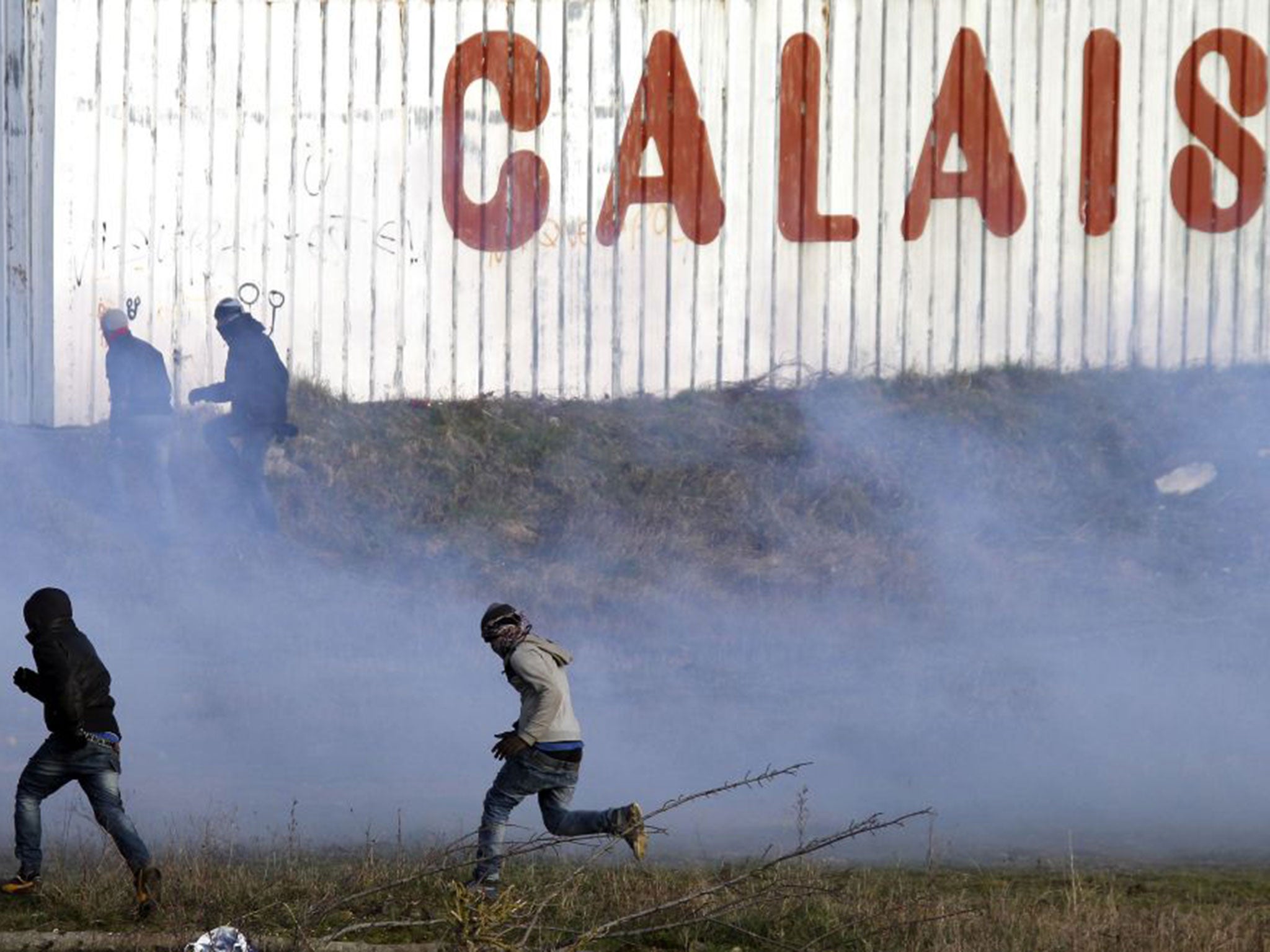UK 'to give France €20 million extra' to stop migrants and refugees reaching England from Calais
The pledge was expected during talks between David Cameron and Francois Hollande in Amiens

Your support helps us to tell the story
From reproductive rights to climate change to Big Tech, The Independent is on the ground when the story is developing. Whether it's investigating the financials of Elon Musk's pro-Trump PAC or producing our latest documentary, 'The A Word', which shines a light on the American women fighting for reproductive rights, we know how important it is to parse out the facts from the messaging.
At such a critical moment in US history, we need reporters on the ground. Your donation allows us to keep sending journalists to speak to both sides of the story.
The Independent is trusted by Americans across the entire political spectrum. And unlike many other quality news outlets, we choose not to lock Americans out of our reporting and analysis with paywalls. We believe quality journalism should be available to everyone, paid for by those who can afford it.
Your support makes all the difference.David Cameron is to agree to give an extra €20 million (£15.4 million) to France for policing and dispersing migrants attempting to reach the UK from Calais, a minister has said.
In a radio interview before a Franco-British summit at Amiens in the Somme, the French Europe minister, Harlem Desir, said the extra funding came on top of previous British spending of €60 million (£47 million).
In an interview with Radio France Internationale he repeated previous warnings that a Brexit could make it easier for thousands of refugees to reach England by leading France to scrap a treaty currently allowing British immigration checks in Calais and Dunkirk.
“Inevitably, our ability to continue to work closely with the British on migration and security issues would be easier if they remain within the framework of the European Union," he said.
Mr Desir said that this was not a “threat” or “blackmail” but a recognition of the “practical realities”.
Earlier, in an interview with the Financial Times, the French economy minister, Emmanuel Macron, suggested that British withdrawal from the EU would bring an end to the 2003 treaty which de facto moves the UK border to the French side of the Channel. This would, in theory, allow illegal migrants to reach Kent before they are stopped.
“The day this relationship unravels, migrants will no longer be in Calais,” Mr Macron said.
Mr Desir, the Europe minister, did not go quite so far. He said that the 2003 Le Touquet treaty was “bi-lateral” and therefore nor directly dependent on Britain’s EU membership. France did not want Britain to leave but would obviously find a new way of cooperating with its near neighbour if the Brexit camp won the June referendum.
“All the same,” he added. “The situation would change. Our present security and migration relationship with Britain is based on our joint membership of European institutions, such as Europol.”
“Inevitably, our ability to continue to work closely with the British on migration and security issues would be easier if they remain within the framework of the European Union.”
There is growing pressure from politicians in France for the treaty to be renegotiated. In practical terms, however, French officials recognise that it would not be easy for France to repudiate the Le Touquet arrangements.
If migrants thought that it was easy to cross the Channel, they would flood to Calais and other Channel ports in even greater numbers. Even if France stopped allowing British officials to check documents on French soil, ferry companies and Eurotunnel would still be obliged to do so. Britain fines travel companies and individual lorry or car drivers Pounds 3,000 for every unauthorised passenger.
Join our commenting forum
Join thought-provoking conversations, follow other Independent readers and see their replies
Comments